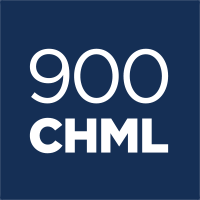St. Joseph’s Healthcare Hamilton has introduced a new piece of the city’s harm reduction strategy for those battling opioid or alcohol addiction.

A rapid access addiction medicine (RAAM) clinic opened its doors on Charlton Avenue East and James Street South on Monday.
“I think the need for addictions medicine has been here for some time but I think the opioid crisis has really demonstrated that we need to do something,” said clinical director Holly Raymond.
RAAM is part of the response, she says. It’s a one-year pilot project that was called for in a 2017 city report on how to tackle the opioid crisis locally. That same year, city data revealed Hamilton’s opioid-related death rate was 72 per cent higher than the provincial average.
The idea behind RAAM is to make recovery methods as accessible as the drugs at the centre of the addiction.
“Because of the extreme discomfort involved with opioid and alcohol withdrawal, it’s really important that we provide that quick, easy access,” said Raymond. “Someone having to wait to see their doctor and get a referral would slow the process down and we may miss a really great opportunity to actually help somebody get what they need.”
RAAM offers an opportunity to see an addictions worker who can provide an assessment, develop a treatment plan and hopefully streamline access to a doctor who can provide opioid treatment therapy or if necessary, a community partner offering other relevant services.
The clinic is considered “low-barrier” because a client seeking addictions treatment can make an appointment at the clinic by way of self-referral over the phone.
Raymond says maintaining a flow of clients in and out of the clinic will be one of the challenges.
Other RAAM locations, she says, have experienced “bottlenecks” of people seeking services in the community.
In an effort to prevent that from happening in Hamilton, Raymond says discussions are happening with local doctors to help them “feel comfortable” prescribing certain medications on an ongoing basis.
As a pilot project, Raymond says RAMM’s impact will be examined in relation to a number of indicators. The number of return visits to the emergency department related to addictions in a 30-day period, reductions in client drug use, overdoses and overdose deaths are among them.
The number of clinic appointments being kept and successful transitions into treatment programs will also be considered.








Comments